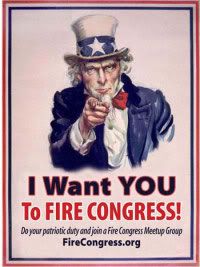Results 1 to 1 of 1
Thread Information
Users Browsing this Thread
There are currently 1 users browsing this thread. (0 members and 1 guests)
-
01-09-2010, 03:25 PM #1
John Colter: The First Mountain Man
John Colter: The First Mountain Man | Print | E-mail
Written by Charles Scaliger
Friday, 08 January 2010 01:00
The sinewy, bearded man raced up the brushy hillside, blood streaming from his nose from the terrific exertion. He did not consider himself a fast runner, but on this occasion the terror of sudden and agonizing death lent wings to his feet.
Somewhere not far behind, his pursuers, their lean bodies more accustomed than his to the severe terrain, were closing in, determined to avenge the death of one of their own. They carried weapons, though they were unlikely to grant their quarry a quick and easy death if they caught him.
All of these thoughts coursed through frontiersman John Colterâs mind as he ran for his life. Although an able shot and capable fighter, Colterâs only assets at the moment were the muscles in his already-exhausted legs. His pursuers had taken his gun and knife, and had stripped him of every last stitch of clothing. The sagebrush and scrub oak tore at Colterâs thighs as he ran, and sharp stones gouged the soles of his feet, but he paid the pain no mind; any torment was preferable to what the Blackfoot warriors would inflict on him if they captured him again.
In 1808, the year John Colter ran his race with the Blackfeet, Western Montana had been seen by only a handful of white men. The better-known era of the Old West, with its gunfighters, cattlemen, and mining towns, lay decades in the future. The frontier as most Americans then conceived it was many hundreds of miles further east, on the lower reaches of the Missouri and the Mississippi rivers. The High Plains, Rocky Mountains, Great Basin, and Pacific Coast ranges were still the domain of native tribes and a few doughty fur trappers.
Headed West
John Colter was born to be a frontiersman. A native of Stuarts Draft, Virginia, where he was born in about 1775, Colter grew up a woodsman. In October 1803, Meriwether Lewis traveled down the Ohio River recruiting men for his Corps of Discovery, which was about to strike out on its fabled journey across the continent to map and explore. The qualifications for recruits were very specific; enlistees in what became known as the Lewis and Clark expedition had to be âgood hunter[s], stout, healthy, unmarried, accustomed to the woods, and capable of bearing bodily fatigue in a pretty considerable degree.â



 LinkBack URL
LinkBack URL About LinkBacks
About LinkBacks




 Reply With Quote
Reply With Quote

Biden Admin Claims Cartel-Utilized Border Island Seized by Texas...
05-14-2024, 08:54 PM in illegal immigration News Stories & Reports